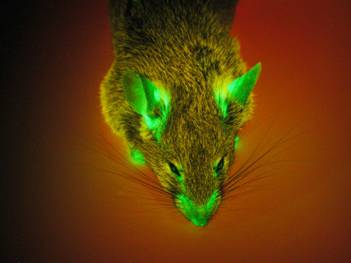No. DNA damage is a negligible part of aging.
I disagree with that. Specifically with your use of the word "negligible". What would happen to me if all my DNA repair was suddenly switched off? The cause of death might not be called "ageing" because it would happen so
quickly but I would mutate so fast that I wouldn't have a chance to pass on these mutations (and any of their potential benefits) to offspring. Although I'd probably for these mutations to be valid they'd have to be from using error-prone repair mechanisms instead of more accurate ones so rather than giving an example of turning off DNA repair instead it probably better to give an example of using a different mechanism of DNA repair.
Here is an article that came up when I googled for dna repair and progeria.
http://www.pubmedcen...gi?artid=433405Biologically immortal organisms still evolve because individuals still succumb to exogenous causes of death.
Lets compare the immortal individual organism to feudal or Stalinist dictatorship and the rapidly ageing individual organism to a thriving free open market (perhaps even slightly anarchist) nation . There is little or no innovation (evolutionary changes) in the immortal organism because every cell is kept in check like a police state. Cells that change to much due to mutations in their DNA are at danger of becoming cancerous so the mitochondria has changed its sex machinery into the machinery to induce apoptosis. Organisms with mitochondria that does this survive cancer long enough to pass on their genes to future offspring. In the "thriving open market" cells rapidly change and are not punished for this but they no longer seamlessly form the individual and these cells have no reason to be clumped together in the first place. They are in just as much danger from each other as they are from the surrounding (and very deadly) oxygen.
So we are most likely something in the middle like a mixed economy. Mitochondria that allows just enough evolutionary mutations to go unrepaired are able to pass their genes on inside "new hardware" ie passed down through the maternal line into a new individual that has slight changed which might confer it advantages in rapidly changing conditions.
However you do touch on "group selection", the idea that groups can experience positive selective pressure for traits that are detrimental to individuals. I think this idea is still controversial in evolutionary biology. I don't believe the idea that aging of individuals evolved for the sake of evolution of species is strongly supported because there is so little aging in the wild.
Well I think we would never be complex organisms in the first place if it so so easy for us to live as simple ones. There is ageing in the wild just not many organisms failing due to near total senescence.
Edited by caston, 14 July 2007 - 03:24 AM.



















































